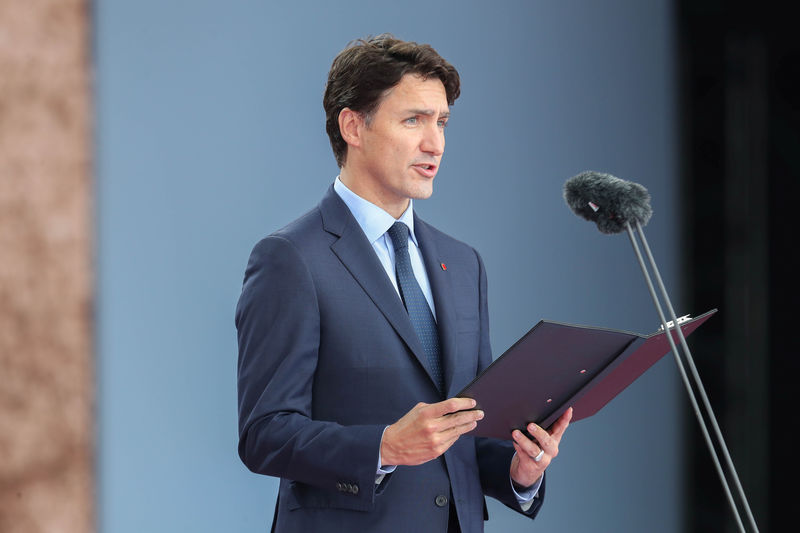By David Ljunggren and Kelsey Johnson
OTTAWA (Reuters) - Canadian Prime Minister Justin Trudeau said on Thursday he was concerned that China could broaden its crackdown on Canada's exports, and that he might seek a meeting with Chinese President Xi Jinping later this month.
China has already blocked imports of Canadian canola seed and looks set to boost customs' examinations of pork shipments.
"We are ... worried about their actions on canola and the potential for other actions against other products," Trudeau said during a televised news conference in northern France, where he was taking part in ceremonies to mark the 75th anniversary of the D-Day landings.
Trudeau, accused by opposition parties of bungling relations with China, is due to attend a summit of the Group of 20 nations in Japan at the end of June. China is also a member.
Asked whether he might talk to Xi on the sidelines of the event, Trudeau said, "certainly we will see whether it would be appropriate or desirable to have a conversation directly with the Chinese President."
Trudeau had up until now sidestepped questions about whether he plans to meet Xi.
Diplomatic relations between Canada and China turned icy last December when police in Vancouver detained Huawei Technologies Co Ltd Chief Financial Officer Meng Wanzhou on a U.S. arrest warrant.
As well as blocking canola imports, China has arrested two Canadian citizens and charged them with espionage. Beijing denied its actions had anything to do with the Meng case, but diplomats and experts say they are clearly linked.
Although Trudeau did not give details about possible targets for further Chinese retaliation, Agriculture Minister Marie-Claude Bibeau later told legislators that she had heard industry concerns about action against soybean exports.
Overall canola exports fell by C$47 million in April, or 14.7%, as shipments to China stopped, Statistics Canada said on Thursday. Exports of wheat, though, jumped C$136 million, or 21.7%, with China accounting for much of the increase.
China said it was blocking imports of Canadian canola seed because pests were discovered in some shipments, a charge Canada firmly denies.
Canadian and Chinese technical experts resumed a series of phone calls on the issue on Wednesday, Bibeau told legislators.

"Yesterday we could feel that we were at a different level of getting into what we want to talk about, the evidence, so this is encouraging," she said.